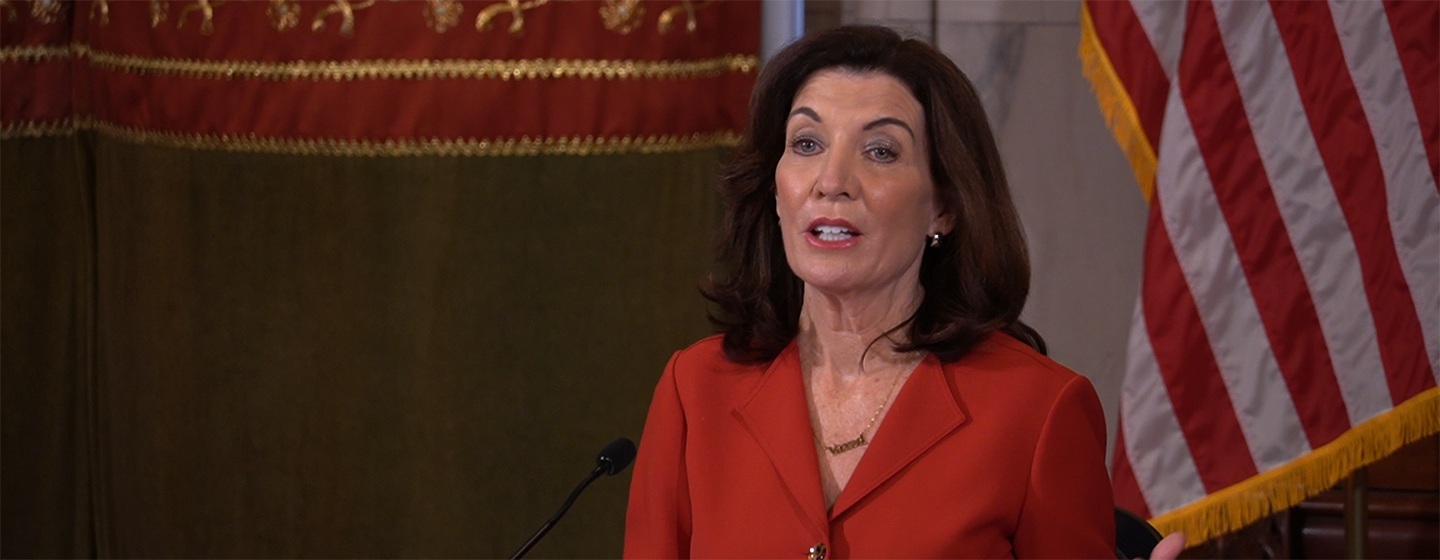Q&A: New York's Abortion Laws After SCOTUS' Reversal of Roe v. Wade

Access to Abortion in New York After SCOTUS' Roe Reversal
Laws around access to abortion will now be decided state-by-state after the U.S. Supreme Court overturned the landmark abortion right decision in Roe v. Wade on Friday.
For some states, that could mean new restrictions on the procedure. Other states have opted to preserve access to abortion ahead of the decision, which was anticipated through a leak to the media in May.
Here’s a look at access to abortion in New York, including for those coming from out-of-state, after Friday’s decision.
Q: Is abortion still legal in New York, even though the Supreme Court has overturned Roe v. Wade?
A: Yes. New York legalized abortion in 1970, three years before the decision in Roe v. Wade.
When Democrats took control of the state Legislature in 2019, they codified the landmark decision into state law. They were concerned, at the time, about a potential reversal of Roe v. Wade from an increasingly conservative Supreme Court.
Q: When is an abortion allowed in New York state?
A: Pregnant people can get an abortion from a legal provider in New York, without restriction, up to 24 weeks into the pregnancy.
After 24 weeks, abortion is only allowed in New York if the health or life of the pregnant person is at risk, or if the fetus is no longer viable. Neither condition is defined in state law, leaving that determination to the pregnant person’s medical provider.
If a pregnant person is less than 10 weeks along, medication may also be an option to terminate the pregnancy.
Q: Who can perform an abortion in New York state?
A: Abortions in New York can be performed by licensed physicians and some Advanced Practice Clinicians (APCs), including physician assistants, nurse practitioners, and licensed midwives.
If a pregnant person is uncomfortable talking to their doctor about getting an abortion, New York also has a family planning program that can guide individuals through their options.
A new state law, approved in June, shields abortion providers in New York from out-of-state civil or criminal legal action, including protection from extradition.
Providers are also protected from professional misconduct claims for offering abortion services, and medical malpractice insurance providers aren’t allowed to take action against them related to that work.
Q: Can I come to New York from another state to get an abortion?
A: Yes. If a pregnant person travels from a state with stricter abortion laws, New York’s law is written to allow them to get an abortion.
Gov. Kathy Hochul, a Democrat, recently directed the state Department of Health to set aside $35 million that will be used to support abortion providers in New York. Those providers are expecting patients to travel from other states to get an abortion.
Q: But what if my home state has laws that criminalize abortion, or allow a lawsuit? What happens if I get an abortion in New York?
A: New York recently approved a package of new laws that would grant new legal protections to people who come here from other states to get an abortion, and the medical providers who perform them.
People traveling here from out of state now have the option to sue individuals or entities that seek to interfere with their plan to get an abortion in New York. Those actions are allowed in the State Supreme Court, which is actually part of the lowest tiers of court in New York.
Courts and members of law enforcement in New York also won’t be allowed to cooperate with civil or criminal actions from individuals or entities in states where abortion is restricted or banned under the new laws.
Q: Does New York’s law allow late-term, or partial-birth abortion, as some politicians have claimed?
A: Abortion is allowed in New York after 24 weeks into a pregnancy under two conditions: if the health of the mother is at risk, or if the fetus will not survive outside the womb. Either would be determined by a qualified medical provider.
If an attempted abortion results in the birth of a live infant, medical providers are required under state law to provide the necessary care to keep that child alive.
Related

Hochul Signs Bills to Protect Abortion Rights in NY, Before Supreme Court Rules on Roe V. Wade
The measures were in response to an anticipated decision from the U.S. Supreme Court that would overturn the 1973 abortion rights decision, Roe v. Wade.

Hochul Signs Bills to Protect Abortion Rights in NY, Before Supreme Court Rules on Roe V. Wade
The measures were in response to an anticipated decision from the U.S. Supreme Court that would overturn the 1973 abortion rights decision, Roe v. Wade.


